Peering into the shadows of toxicity, survivors of narcissistic abuse bear enduring scars. Unravel the webs of behaviors they carry on in the aftermath.
Survivors of narcissistic abuse commonly manifest certain behavioral traits, that signify the trauma they went through when they were with them.
Even after getting out of the relationship, they find it tough to let go of all the bad days, and the horrible treatment they suffered at the hands of their narcissistic partner.
Being in a relationship with a person who has narcissistic personality disorder might be the most emotionally harrowing experience of your life.
The problem is, the victim nearly never recognizes the signs of abuse until it is too late. And the worst part- sometimes the effects of this abuse are so deeply ingrained in the victim’s psyche that it can take years for them to fully recover.
However not many people are able to link the two, but knowledge is power. Knowing about it can help you fight it.
Here Are 9 Behavioral Traits Shared Amongst Survivors of Narcissistic Abuse
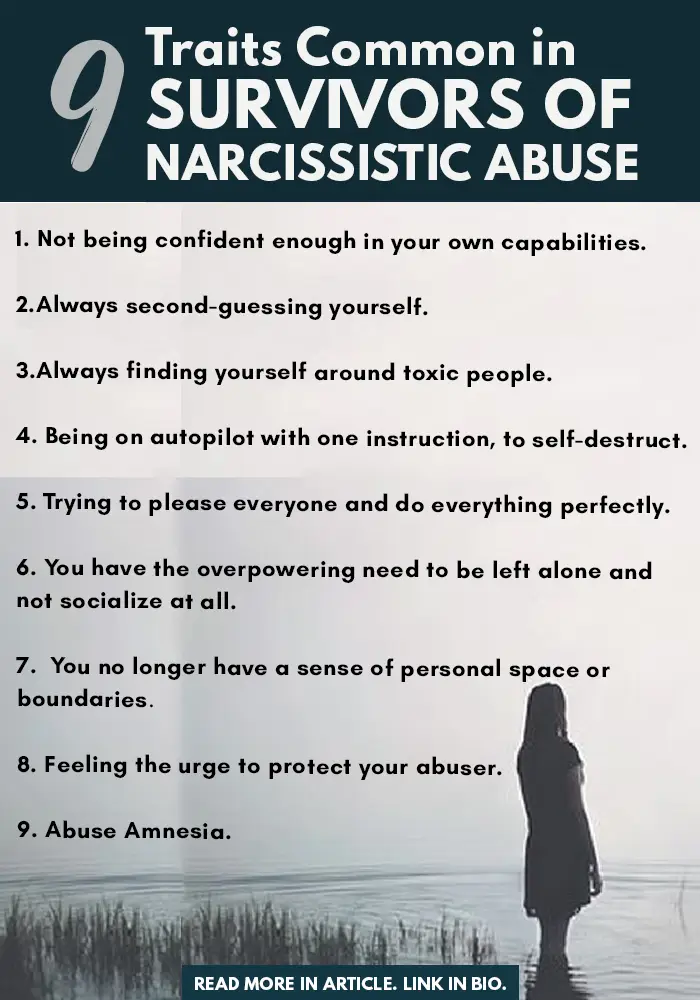
1. Not being confident enough in your own capabilities.
Before meeting the Narcissist, you might have had a decent amount of self-worth, even if you weren’t the most confident being who walked on this earth.
But the effects of narcissistic abuse is that it would have changed drastically after. You no longer feel like your own person. Every single decision you make is through the lens of how others would judge you.
You are no longer assured of your own choices and are always asking others for opinions and overall undermining yourself in favor of what others think is good or right.
Related: 9 Things You Can Do To Help A Survivor Of Emotional Abuse
2. Always second-guessing yourself.
It is almost second nature to a narcissist to warp the reality so that you are no longer sure of yourself. This helps them in getting away with almost anything they say or do.
They question and falsify their actions so that you are left wondering whether you imagined everything. And soon you would lose the ability to distinguish between what’s real and what’s the smokescreen set up by the narcissist to befuddle you.
There is always an internal conflict going inside your head where you question the reality you know versus the facts that the narcissist has conditioned you to believe.
3. Always finding yourself around toxic people.
Another big problem with narcissistic abuse is that it very easily turns into this endless cycle of repeated trauma.
Because being with a narcissist blurs your perception of reality has changed, you are no longer able to differentiate between what is good for you, and what is equally as toxic as the previous relationship. You internalize the abuse and think of it as the new norm.
So, even when you are running away from your abuser you are seeking and falling into the trap of even more people like them.
4. Being on autopilot with one instruction, to self-destruct.
A narcissist would make you believe that you have no talents at all, and you cannot ever do anything right. They ridicule you, taunt you and demean you to the point that you start sabotaging yourself.
They want to completely crush your confidence so that you cannot stand up to them. And in doing so, they turn you into this empty shell of your former self. Things you used to excel at become too difficult to even attempt.
They play so cruelly with your sense of confidence that you actually believe them when they tell that you’re worthless and your actions match these thoughts.
Related: Anxiety Disorders Could Be Caused By Being Exposed To Narcissistic Abuse
5. Trying to please everyone and do everything perfectly.
A narcissist would make you believe that the most important objective of your life was to please them. You tried to do everything as they liked, and to perfection hoping that they will finally praise you, or at least leave you alone for a while.
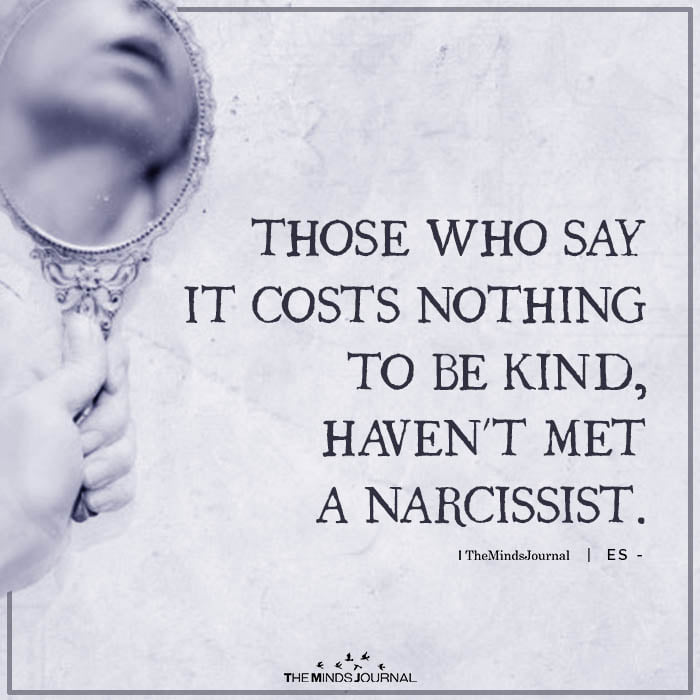
When in a relationship with an abuser, you did all this for self-preservation, if you did not please your abuser he would torment you physically or mentally.
Even after the relationship is over, you might be repeating the same behavior with other people as well. You’d be more worried about not getting on the wrong side of someone, even if it meant being untrue to your own self.
6. You have the overpowering need to be left alone and not socialize at all.
Narcissists are great at isolating their victims from their friends and family. That’s because it makes it easier for them to control their victim.
This trait too might remain even after the abusive relationship is over. It is a natural instinct to want to be left alone on your own when recovering from such a traumatic experience.
But you shouldn’t withdraw from people who want to/ are capable of helping such as professionals or those who can relate with what you’re going through.
7. Abuse Amnesia.
When your abuser comes back to you with a seemingly heartfelt apology and a promise that they have seen the fault in their ways, you might be tempted or deluded into forgetting the abuse you experienced in the past.
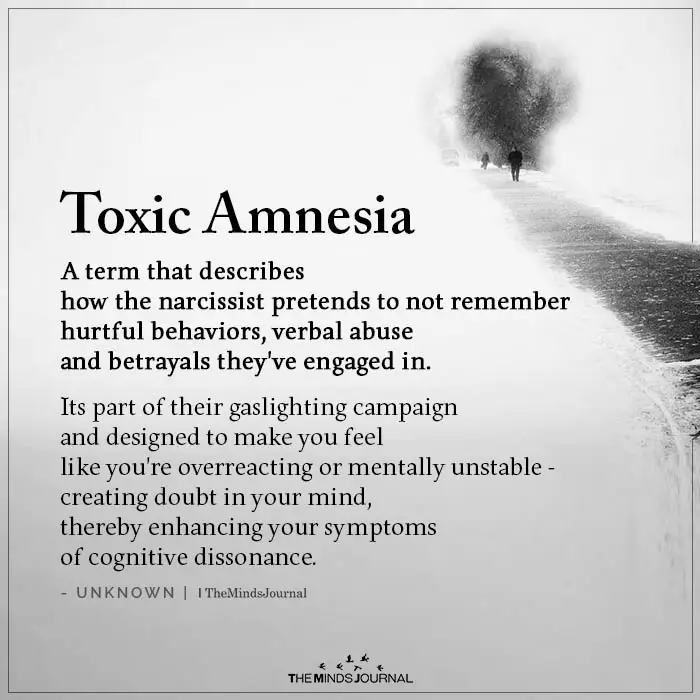
This is called abuse amnesia where you don’t recall things to be as bad as they really were or try to explain them away hoping that the person has really changed and maybe this time things will be different.
Don’t fall into that trap. Have a list of abusive incidents (with supporting proof if possible) handy so that you can remind yourself why you separated from this person.
Related: The Aftermath Of A Relationship With A Narcissist
8. Feeling the urge to protect your abuser.
Against all logic, this is a very true and very dangerous consequence of being with an abuser. They make you dependant on themselves and make you believe that things are never as bad as they seem to you.
So that even after the relationship is over, you always think of it as a happy or normal one even if it was anything but. This might even come in the way of your own welfare.
It could take the shape of noncompliance to authorities who are trying to catch your abuser, fights with a family who call a spade a spade, or even self-protection when you refuse to take action against the abuser if they are trying to cause you more trauma.
9. You no longer have a sense of personal space or boundaries.
The abuser invaded your life so completely that you no longer have a sense of healthy boundaries. You don’t know how to say ‘no’ to people or situations which make you feel uncomfortable.
You have forgotten that you are an individual who needs their boundaries to live in peace.
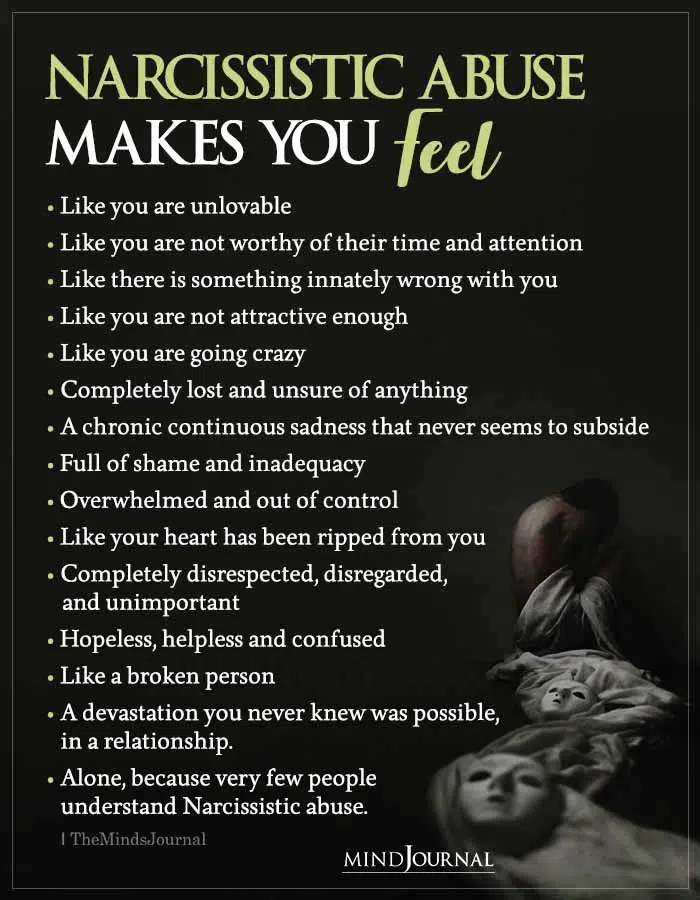
Related: 5 SuperPowers That Survivors of Emotional Abuse Uniquely Possess
Being an NPD abuse survivor is tough. Consciously remind yourself of these boundaries, make a list and follow it through if necessary but don’t let others run over you.
The Minds Journal Articles Volume -1 is Copyright Protected vide Regd.# L-103222/2021
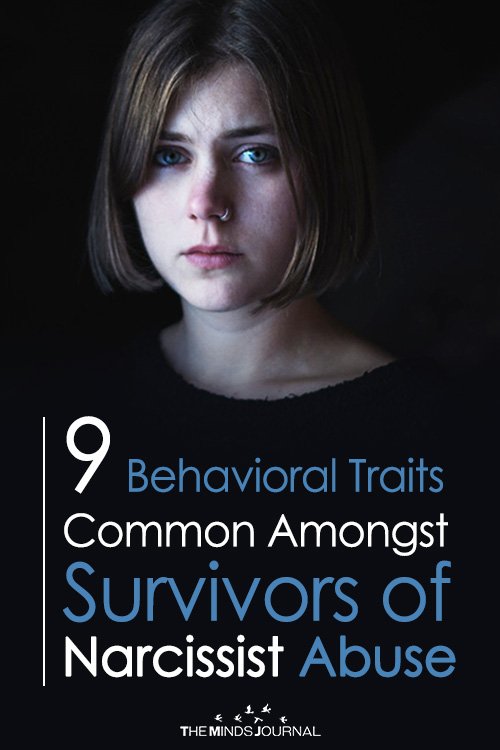
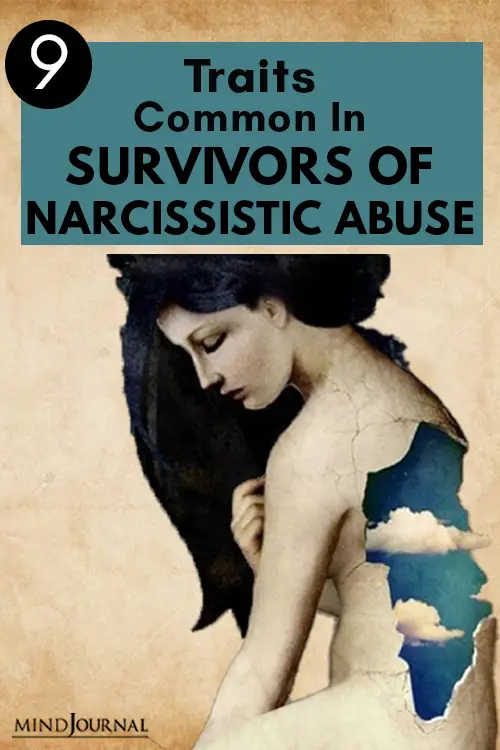
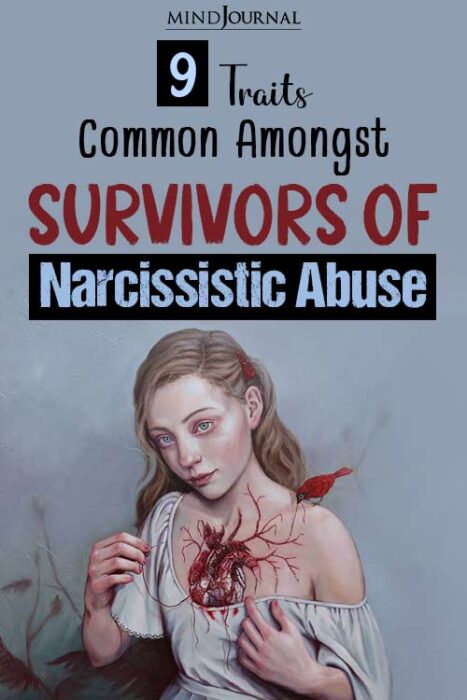
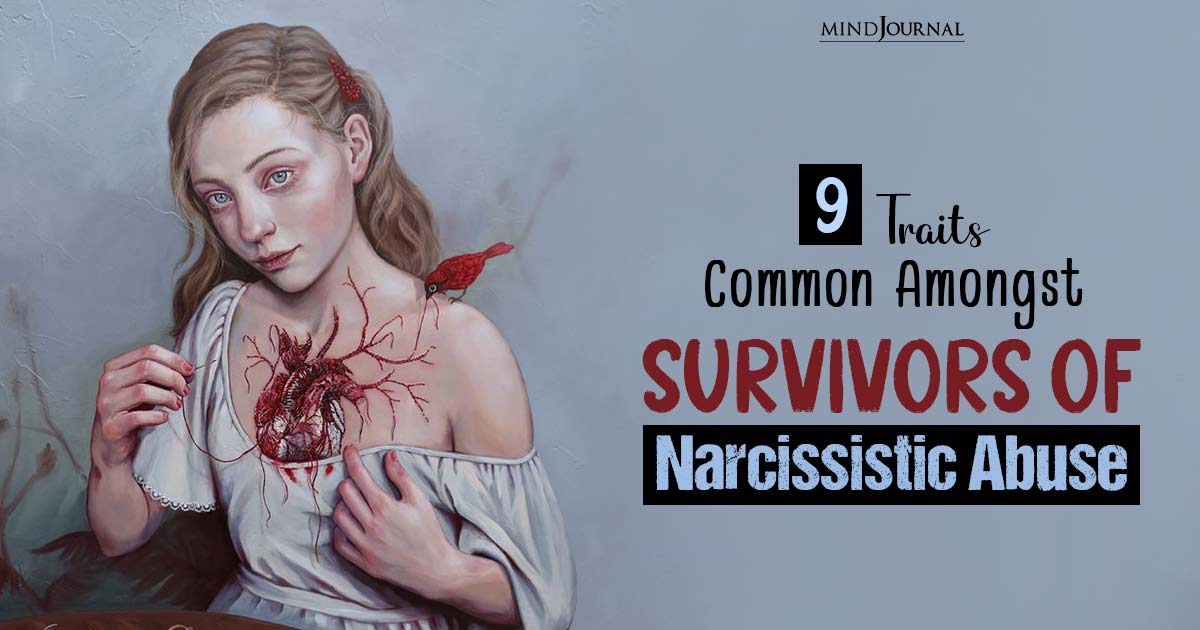







Leave a Reply
You must be logged in to post a comment.